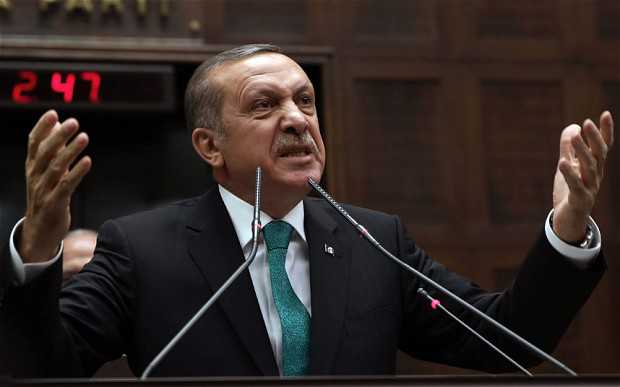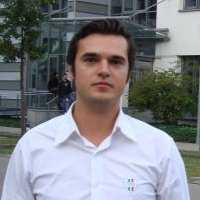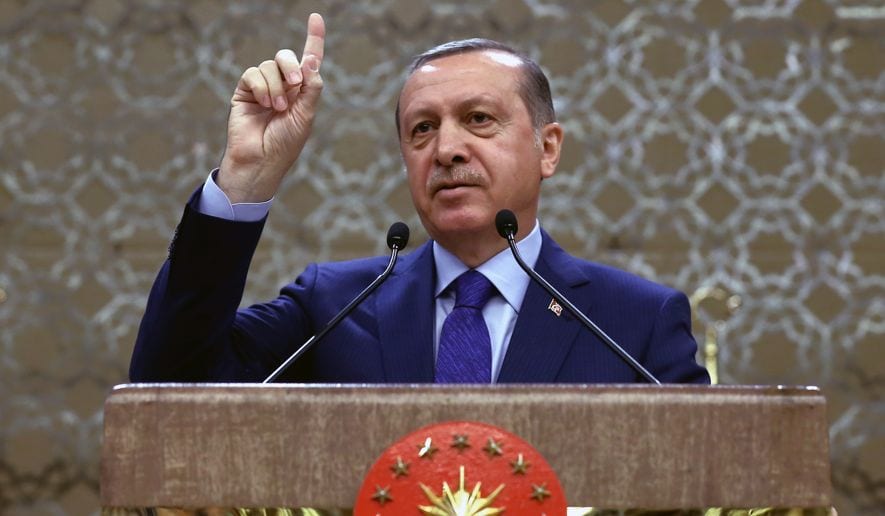By Ayla Albayrak
Associated Press

Turkish Prime Minister Recep Tayyip Erdogan, right, underwent laparoscopic surgery on Nov. 26, 2011, to remove what a physician later said were noncancerous intestinal polyps.
ISTANBUL — Turkey’s Prime Minister Recep Tayyip Erdogan has broken his silence to stop swelling rumors that he is stricken with cancer and is secretly undergoing chemotherapy treatment.
The news, which spread like wildfire across Turkish media and social-networking websites, marks the first time Turkey’s prime minister has addressed the speculation since he was hospitalized in November for an operation on his bowel.
The scoop was secured by veteran Turkish journalist Mehmet Ali Birand, who spent three hours with the prime minister on Wednesday in an extended interview for his TV news program on Turkish television channel Kanal D. In his Friday column, Mr. Birand said that he asked Mr. Erdogan directly whether he had cancer, to which Mr. Erdogan replied “no.”
The Turkish prime minister’s health became the subject of frenzied speculation after he was suddenly taken to a medical operation in Istanbul late November without a prior public announcement. After he spent a weekend in Istanbul’s Marmara University’s teaching hospital, Mr. Erdogan’s office released a statement saying he had undergone a scheduled laparascopic, or keyhole surgery, to deal with problems with his bowels.
Despite the statement, rumors spread that Mr. Erdogan had cancer of the bowel or colon. The speculation was so rife that it prompted The Economist to pen an article discussing who could possibly succeed Turkey’s talismanic leader if he was critically ill.
Mr. Erdogan is one of the strongest political leaders in modern Turkish history, now serving for his third term as the prime minister, after successive landslide electoral victories of his Justice and Development, or AK Party. There appears to be no obvious successor candidate to succeed him, if he were to withdraw from politics.
To squelch the rumors, Mr. Erdogan offered details of his condition, admitting that doctors had found a polyp in his bowels that could have turned cancerous, but stressing that it had been safely removed. “Of course, there is difference between the Erdogan I’ve seen before with the Erdogan today,” wrote Mr. Birand, who himself recently underwent treatment for cancer.
The veteran columnist insisted it was his judgment that Mr. Erdogan was not on a course of chemotherapy. “I looked at him, and understood: No, he is not under (chemotherapy treatment),” Mr. Birand wrote.
In Birand’s Thursday TV interview, Mr. Erdogan said that doctor’s have advised him that in March he will be ready to go back to his usual hectic work schedule. Mr. Erdogan, known for his tireless schedule, said that when fit, his work days would rarely end before midnight. “Even in this state, coming home stretches to 10 p.m. or so… Sometimes my wife gets nervous an angry (because of that),” he said.
The prime minister, who critics here claim are thin-skinned about negative media coverage, also said he keeps relaxed by dodging hostile channels. “I mostly follow those (news) that do not fray my nerves,” Mr. Erdogan said.
via Erdogan Seeks to Dispel Cancer Rumors – Emerging Europe Real Time – WSJ.





